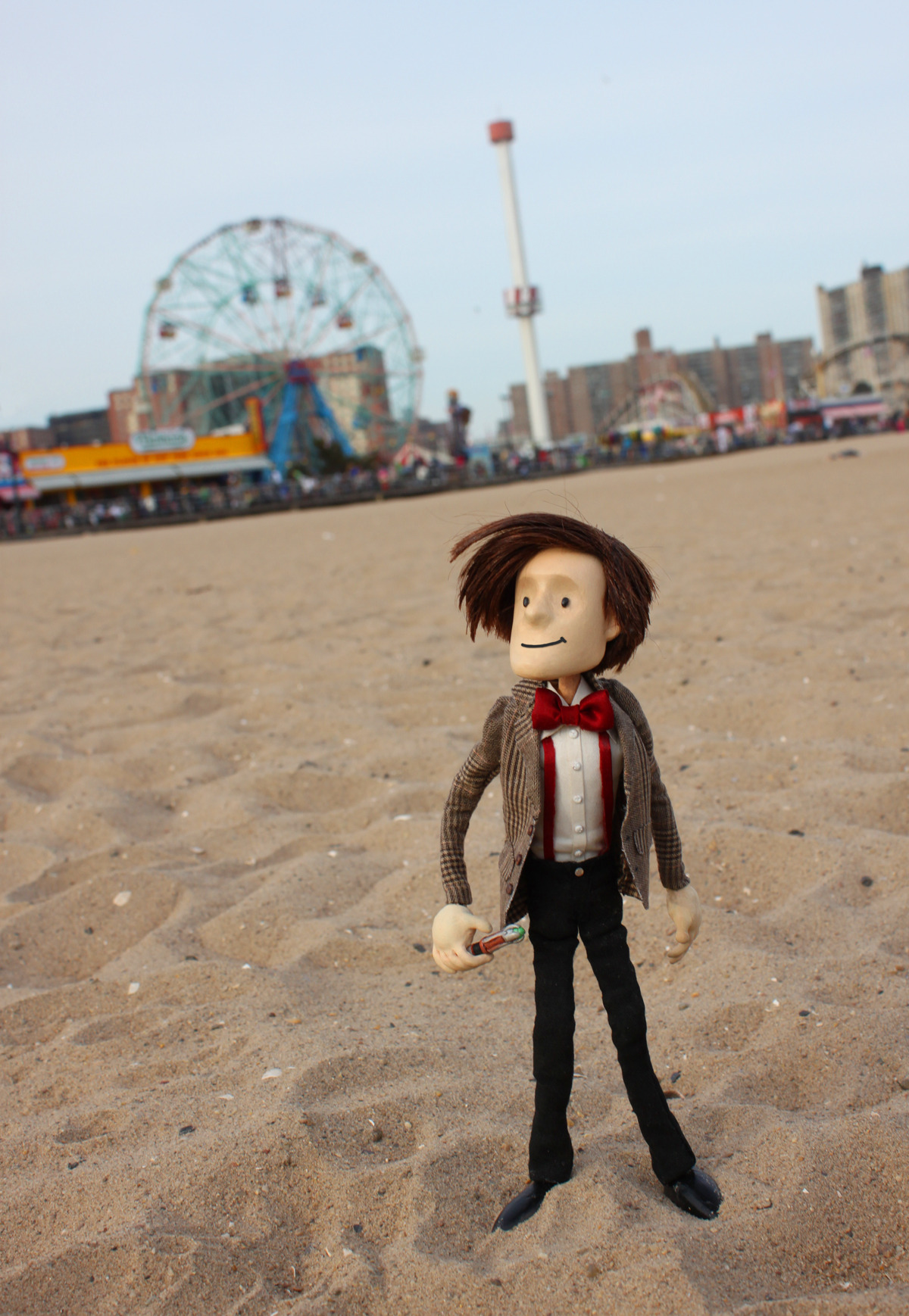So! Now that the brilliantly weird
Craig Ferguson "cold open" has been aired officially, publicly, and legally, we have an excuse to talk about it some more. If nothing else we should note that in the January 6 show, Ferguson updated his thesis thus:
Intellect and romance triumph over brute force and cynicism --
BUT...
Boobies over intellect.
Made more sense in context, of course, but as a straight male who has always been susceptible to the charms of
décolletage, I am forced to agree.
But more seriously, I wanted to raise again this word "romance" as a topic for discussion. I imagine that for many DOCTOR WHO fans, especially those of the current revival of the series, the word "romance" transports us instantly to
Dårlig Ulv-Stranden for either of the two agonizing partings of the Doctor and Rose Tyler. (I'm trying to think of another moment in the series to equal this in terms of "romantic love" but I confess I'm stumped.)
I'm pretty sure, though, that Ferguson uses the term in its medieval sense (the sense which is still, apparently, the dominant one where the dictionary is concerned; Merriam-Webster, for example, cites
this definition first). The gist of that definition is that it describes heroic adventure, a clear delineation between good and evil, and a setting of "long ago and far away." DOCTOR WHO has certainly always provided all of that.
 |
| In a romance, virtue is invariably triumphant over evil. This enables a man who's recently been comatose to defeat a giant armored warrior. While still in his jim-jams. | | |
Another related definition of "romance" relates to the belief in something for which there is no empirical evidence. Examples, depending on your level of skepticism, might include belief in God, true love, intuition, or perhaps even the concepts of truth or beauty.
It seems to me that DOCTOR WHO has often confronted the conundrum of this definition of romance. The Doctor, being from a highly advanced race and having seen and done practically everything there is to see and do in the Universe, tells us again and again that he doesn't believe in ghosts, doesn't believe in luck, and is scornful of superstitions and primitive ideas of spiritualism.
But a woman's intuition he will trust, even in absolute defiance of available facts. He does it again and again over the years and I can't think of a single instance of this trust being misplaced.
In fact ... my son and I recently watched one of the very first episodes of the series,
The Edge of Destruction, for the first time, and we were astonished to see that even here, all the way back at the beginning,* the meme is established. Barbara believes in something she can't prove. Ian believes her on sheer faith, but the Doctor is not only skeptical but downright scornful.
Of course she turns out to be right, and even the haughty First Doctor has to admit his error. The real surprise for longtime fans of the show is that the subject of Barbara's faith-based assertion is the TARDIS itself; she feels the ship has a mind of its own and is trying to communicate with the Doctor! So at this point in the vast epic of our favorite TV series, the human passengers understand something about the TARDIS that the Doctor does not.
So here's a romantic notion for you: is this the incident which opened the Doctor's eyes to the extraordinary potential of the human race? Is this when his centuries-long devotion to this one tiny blue planet and its humble inhabitants begins? When he realizes they -- we -- are blessed with abilities he lacks, such as intuition, faith, and ... well, love?
=====
*If you've seen the episode, you know there are in fact two senses in which it is "all the way back at the beginning"!








